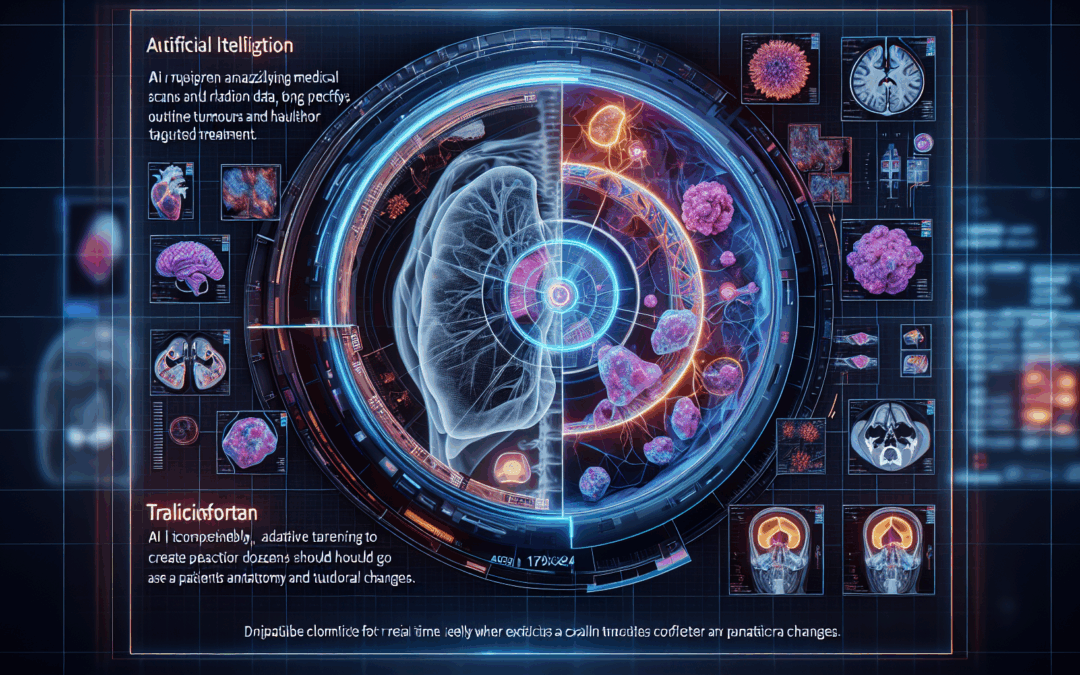Transforming Radiation Oncology Education: The Crucial Role of AI at ESTRO 2025
🌟 The future of radiation oncology education is unfolding before our eyes as artificial intelligence emerges as a key driver of transformation. At the upcoming ESTRO 2025 conference, the session titled “AI in Radiation Oncology Education,” led by Simon Duke from the UK, promises to illuminate the profound impact AI is having on this vital field. By enhancing educational practices and personalizing training, AI is reshaping the way learners engage with and apply their knowledge, ultimately leading to improved clinical decision-making in oncology.
🤖 As Luca Boldrini, the session chair, will highlight, AI’s potential to augment traditional educational models is immense. This session focuses on supporting interdisciplinary learning and fostering innovation in training future radiation oncologists. By effectively integrating AI into teaching practices, we are preparing professionals for a tomorrow where advanced algorithms seamlessly enhance patient care and decision-making, promoting a more efficient and precise approach to treatment.
✨ Innovation and inspiration are at the heart of these discussions, urging conference attendees to view AI advancements as opportunities to revolutionize training methods and achieve better outcomes in medical practice. By embracing these technological developments, healthcare professionals can unlock new pathways to excellence and effectiveness in oncology.
🌐 Collaboration stands as a cornerstone of the session, advocating for interdisciplinary strategies and dynamic adaptation of educational curricula. The rapid technological change in the field necessitates a comprehensive approach to ensure all practitioners remain at the forefront of their discipline. By doing so, we can collectively address future challenges and drive the continuous evolution of radiation oncology education.
🚀 At its core, the ESTRO 2025 conference session serves as a pivotal moment for radiation oncology professionals to delve into AI’s expanding role within their education and practice. It is an invitation to shape the next generation of clinical leaders, forging a path toward a future defined by innovation and improved patient outcomes. Let us seize this chance to inspire and be inspired, unlocking the full potential of AI in radiation oncology.
The ideas presented here are derived from the following article: http://www.educase.com/index.php?view=article&id=157%3Aexploring-ais-role-in-revolutionizing-radiation-oncology-educat-1740720579&catid=14
🌟 The future of radiation oncology education is unfolding before our eyes as artificial intelligence emerges as a key driver of transformation. At the upcoming ESTRO 2025 conference, the session titled “AI in Radiation Oncology Education,” led by Simon Duke from the UK, promises to illuminate the profound impact AI is having on this vital field. By enhancing educational practices and personalizing training, AI is reshaping the way learners engage with and apply their knowledge, ultimately leading to improved clinical decision-making in oncology.
🤖 As Luca Boldrini, the session chair, will highlight, AI’s potential to augment traditional educational models is immense. This session focuses on supporting interdisciplinary learning and fostering innovation in training future radiation oncologists. By effectively integrating AI into teaching practices, we are preparing professionals for a tomorrow where advanced algorithms seamlessly enhance patient care and decision-making, promoting a more efficient and precise approach to treatment.
✨ Innovation and inspiration are at the heart of these discussions, urging conference attendees to view AI advancements as opportunities to revolutionize training methods and achieve better outcomes in medical practice. By embracing these technological developments, healthcare professionals can unlock new pathways to excellence and effectiveness in oncology.
🌐 Collaboration stands as a cornerstone of the session, advocating for interdisciplinary strategies and dynamic adaptation of educational curricula. The rapid technological change in the field necessitates a comprehensive approach to ensure all practitioners remain at the forefront of their discipline. By doing so, we can collectively address future challenges and drive the continuous evolution of radiation oncology education.
🚀 At its core, the ESTRO 2025 conference session serves as a pivotal moment for radiation oncology professionals to delve into AI’s expanding role within their education and practice. It is an invitation to shape the next generation of clinical leaders, forging a path toward a future defined by innovation and improved patient outcomes. Let us seize this chance to inspire and be inspired, unlocking the full potential of AI in radiation oncology.
